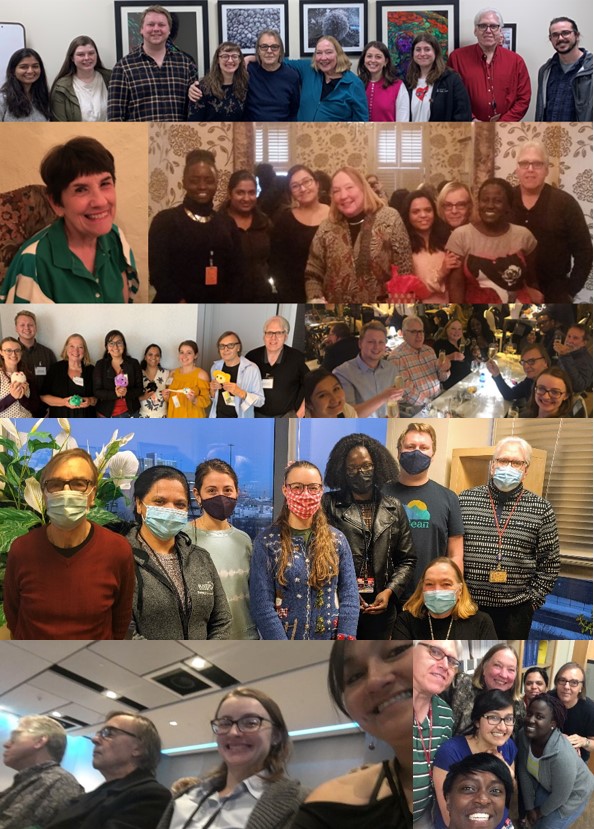Boston University School of Medicine

Team Members:
Professor Deborah Anderson serves as the Administrative PI of the CRC grant, Co-Leader of the Executive Committee, and Leader of the Administrative Core and Project 3. She is a Professor in the Departments of Medicine, Obstetrics and Gynecology and Microbiology at Boston University School of Medicine (BUSM) and has been dedicated to contraception, reproductive immunology and STI research for her entire career. She studied pregnancy immunology for her Ph.D. at the University of Texas, the role of antisperm antibodies in infertility as a postdoctoral fellow at the Oregon Regional Primate Research Center, and immunogenetics of gametes at Harvard Medical School (HMS) during a second postdoctoral fellowship. In 1984 she joined the faculty of the Laboratory for Human Reproduction and Reproductive Biology at Harvard Medical School (HMS), where she participated in their NIH-funded Contraception Research Development Center and continued research on contraceptive methods including anti-fertility vaccines. She served on the WHO Task Force for Fertility Vaccines from 1985-1990, and convened a WHO-sponsored workshop on sperm antigens (1986) which identified a unique male reproductive tract specific antigen, CD52g, as a leading contraceptive vaccine candidate. [This sperm glycoprotein is the focus of the current CRC application]. She has also served on the scientific advisory committees for Family Health International and the American Foundation for AIDS Research. She was the director of the Fearing Laboratory in the Department of Ob/Gyn at the Brigham and Women’s Hospital, HMS, from 1985-2005, where she conducted research in the area of infertility and contraception. During that time she also started a research program on the sexual transmission of HIV, with the goal to apply what she had learned in the contraceptive vaccine field to develop mucosal vaccines and topical microbicides to control HIV transmission. She has collaborated with members of the scientific team that comprises this CRC program for over 20 years. Before they received their current CRC grant (P50 HD096957) they collaborated on an NIAID-sponsored Program Project (P01 AI4596701) to study the mechanisms of action of anti-STI antibodies in the female genital tract, and an NIAID-sponsored IPCP multicenter microbicide program (U19 AI096398) to develop a monoclonal-antibody based vaginal microbicide for the prevention of HIV and HSV sexual transmission.
Joseph Politch, Ph.D. serves as Co-investigator on Project 3 and on the Administrative Core. Dr. Politch has had extensive experience in the field of Andrology at BUSM as well as Brigham and Women’s Hospital for over 35 years. During this time he also conducted research focused on male fertility and HIV in semen with Dr. Anderson. He is currently an Associate Professor in Medicine at Boston University School of Medicine.
Robina Folland, M.B.A. serves as the senior administrator on the Administrative Core. She has over 40 years of experience with grant administration and has served in this capacity on our two recent multicenter projects.
Role of the BU site
Specific Aims for the Administrative Core:
1. Provide scientific leadership and administrative oversight.
2. Coordinate data and materials acquisition and sharing to insure that project and program milestones are met.
3. Manage the database and statistical analyses for the two clinical trials.
Specific Aims for Project 3:
1. Test antibody variants for contraceptive activity.
2. Develop improved vaginal film formulations for immediate and extended HCA release (in collaboration with the team from Magee Women’s Research Institute/University of Pittsburgh).
3. Evaluate exploratory PK/PD endpoints using innovative assays that measure HCA concentrations and activity in vaginal samples before and after film use.
4. Assess exploratory safety endpoints (vaginal inflammation, changes in the vaginal microbiome and gene expression pathways, de novo development of antisperm immunity) in women before and after HCA film use.
